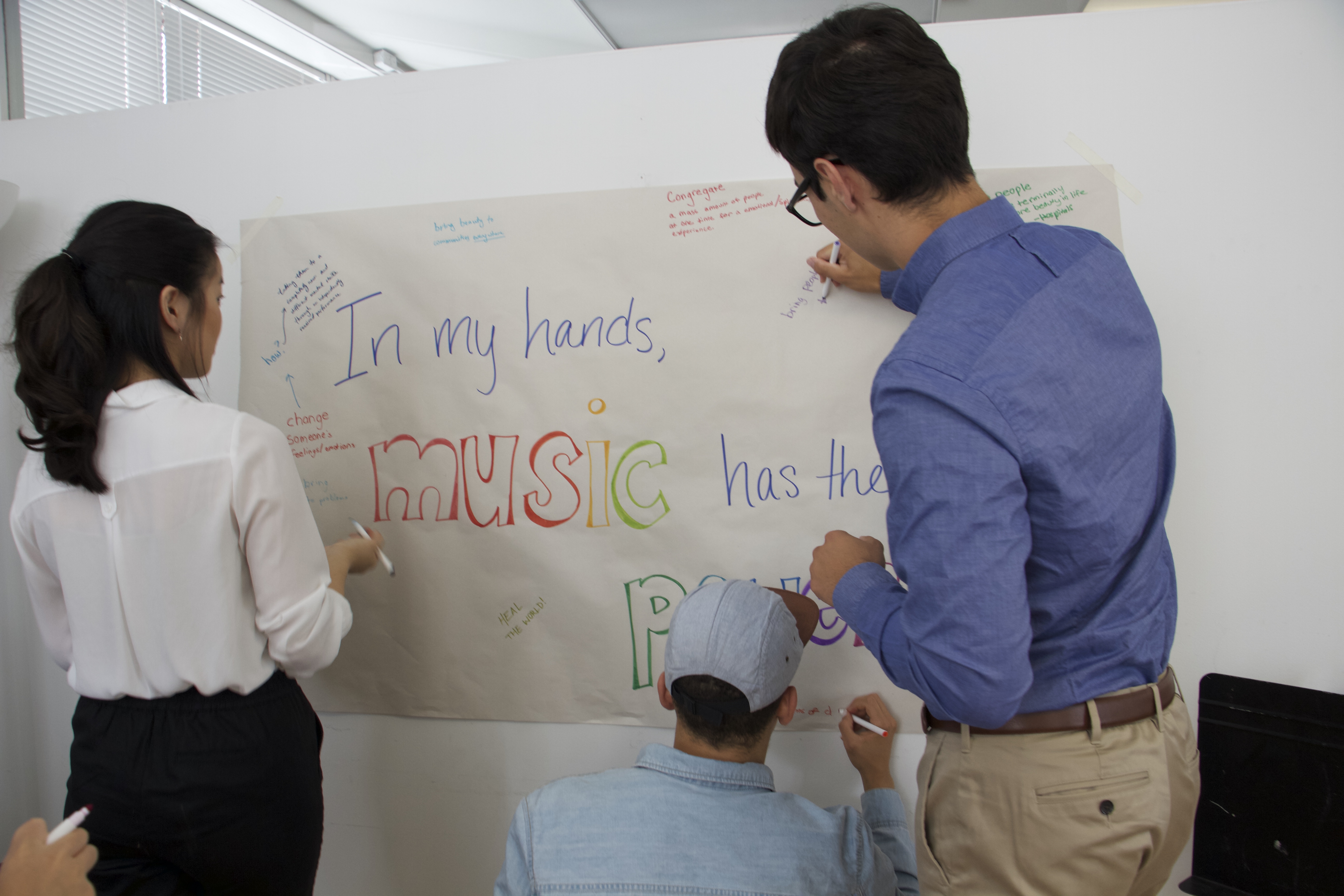Orienting a New Class of From the Top Alumni
Chad Lilley is From the Top’s first Beth Klarman Fellow, spending a summer interning with our marketing and program teams, and has appeared on NPR’s From the Top with Host Christopher O’Riley. This is part three of his blog series of seeing the other side of From the Top. You can read parts 1 and 2 here and here.
***
One of the first things I did while on this internship involved helping production on Show 307 in Boston’s Back Bay. Of course you can check my last blog to read up about that experience, but another vital part of my job for that show was in working with Education Program Manager Shea Mavros to put together the Arts Leadership Orientation and outreach event for the day after the show. This was another particularly interesting contrast for me, considering I was, quite literally, sitting on the other side of the table than when I was on Show 278 in October 2013.
Anyone who’s been on the show can relate to what I mean when I say that the orientation and outreach that follow the show are typically the most exciting parts of the From the Top experience. It is, after all, what makes the organization truly unique. When writing about my experiences on From the Top for my college applications this past year, I recalled events from the outreach more than performing on the show itself, which says something about the work and passion that went into it.
When performing on the show, just as with production, you will never truly know the amount of preparation that goes into the whole experience to make it both a fulfilling and exciting one. Speaking for myself, it never occurred to me the amount of work that went into creating a succinct, yet memorable and fulfilling Arts Leadership Orientation and outreach event my first time on the show. For this show in Boston, I spent a good amount of time going over a script with Shea the week before I was to help lead alongside her, discussing who would speak about what, how to transition and keep the kids interested and excited about this big-picture idea of “arts leadership.”
Being on the other side of things was especially interesting considering many of the performers that took part in the arts leadership orientation were my age (the only exception being Dylan Wu, an 11-year-old cellist that plays with such fire he might as well be 18 anyway, but I digress). Because of the lack of an age gap, I was treated as more of a friend than a mentor, which created a situation for really dynamic and authentic discussion, one that we all gained much from (it also may have helped that I knew a few of the performers on the show from previous musical endeavors). It was a really surreal experience to see and hear myself giving the same speech I received less than two years ago. Sitting in the exact same conference room as these fresh alums, I slowly began to realize how long it’s been since I sat in those chairs. Luckily, I was to partake in their outreach with them, as if I had participated on the show as a performer.
We traveled to the Goddard House, an assisted living center in Boston that caters towards those who are living with memory loss, such as Alzheimer’s disease, to put on a short concert set for the members during their lunch hour. We each had our own moment to shine, with time to speak individually to the surprisingly attentive audience; they were all incredibly interested in the stories we shared, of our instruments, music, or past. Performing in an environment such as this one requires a different type of persona than one would typically bring onto a concert stage. As someone who is normally very comfortable performing on large stages in front of large numbers of people, it was an interesting contrast to feel the nerves rile up as my moment drew closer to step out in front of the residents of the Goddard House.
Because of this experience, I have realized that arts leadership is reciprocal. As we use our music to help those around us, we learn to help ourselves in the realization of what music is really all about. Having become so used to competing and simply walking on stage in front of the lights with the singular goal of “playing as perfectly as possible,” I started to lose focus on what music is really about: the simple enjoyment it brings, not the medal, nor the money, but the music itself. Performing at places such as the Goddard House remind a performer why we do what we do, and that is something incredibly special. Being so close to such a truly interested audience brought me back to earth in a way that performing at the Kennedy Center can’t even do.
Looking up after my performance at the Goddard House, greeted by wide grins and the best applause you could ask for, I remembered why I dedicate my mind and body to music in the first place, in a way that made me beam on the inside wider than I think I have in a very long time.
It was truly a magical moment.
CL



